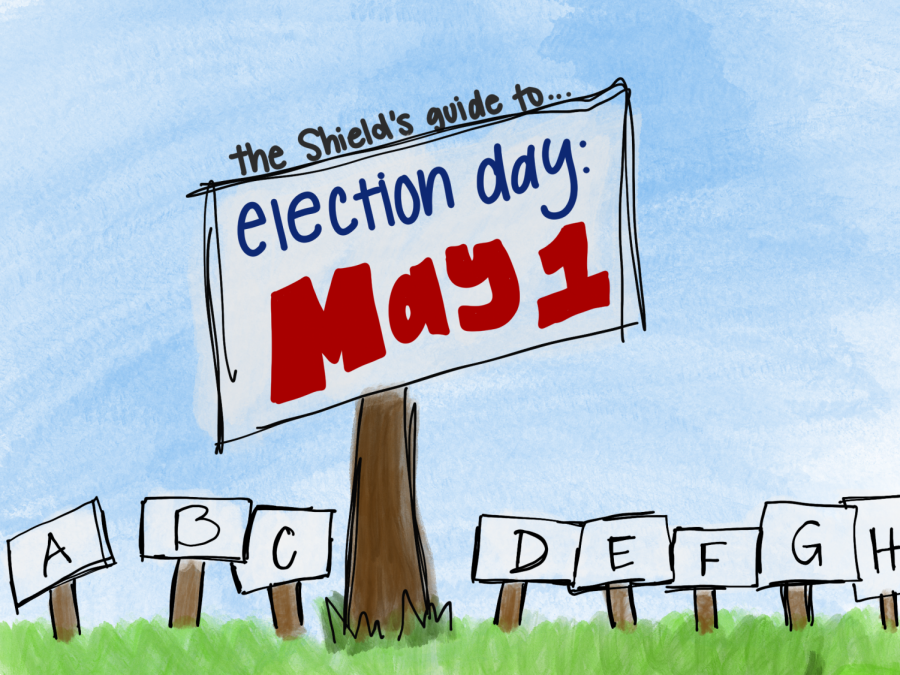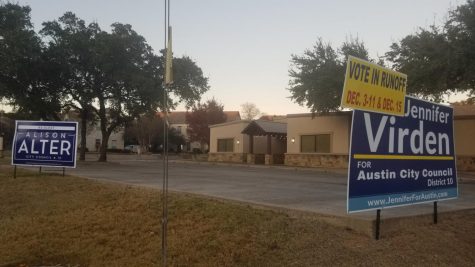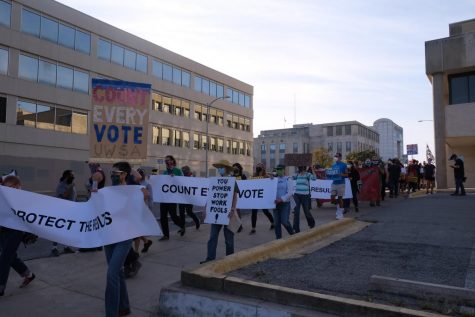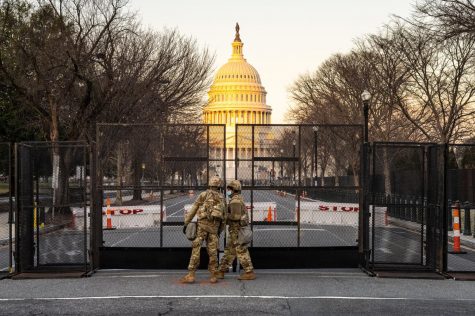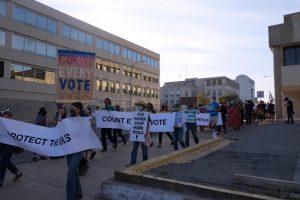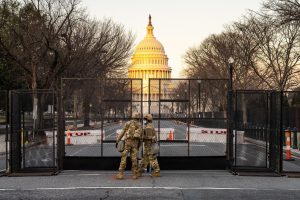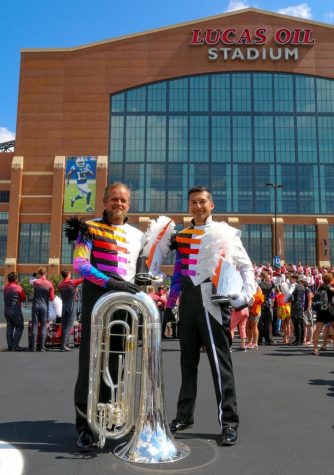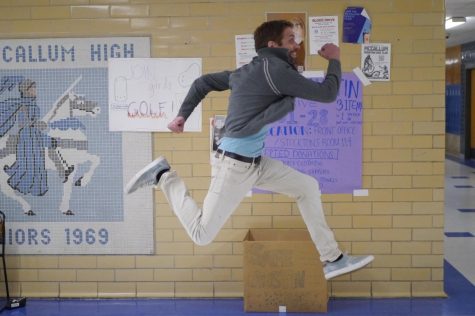Municipal election to decide fate of eight propositions
Voters in general election tomorrow will weigh in on homelessness, police oversight, firefighter salary arbitration and whether or not to strengthen the mayor’s role in the city
Voters won’t be electing people to office on Saturday but rather determining the course of essential local policies, touching on several essential issues, among them homelessness, the role of the mayor in city government and the role of the council in overseeing police operations..
April 30, 2021
With early voting already ended, the May 1 general election is the last chance for registered voters to have their voices heard on a broad slate of important propositions. Although no people are actually being elected, making this a municipal election, there are many propositions that could change the future of our city’s management and leadership, so it’s still very important to get out and vote. Here’s a rundown of what the different options are, and what would happen if each of the propositions passes.
Prop A: Austin Firefighters Association and City of Austin charter disputes
If passed, Prop A will require a third party, a.k.a. a binding arbitration, when the City of Austin and Austin Firefighters’ Association and the City of Austin reach a stalemate in any sort of negotiations. A binding arbitration is a more private, less costly and less time-consuming way of solving the dispute. Currently, if any disputes take place neither party has to agree to a binding arbitration, but if passed this law would require it. Proponents of Prop A say that it will save taxpayer money, solve disputes quickly, and allow the fire department to focus on fighting fires.
If it doesn’t pass, things will continue as usual, where if AFA and the City of Austin get locked in a stalemate, neither will be required to agree to a binding arbitration to solve the dispute. This would also leave the current charter the way it is until October 2022.
Prop B: Homeless camping
If Prop B passes, public camping will be banned for the homeless, meaning they can no longer camp in certain public streets, sidewalks and parks. Camping in public places would be deemed a criminal offense. Proponents say that it will finally be action on homelessness, which has been an issue in the city for decades.
If Prop B doesn’t pass, public camping will remain legal in all public spaces around Austin. Opponents of Prop B say that it criminalizes homelessness and presents no real solutions.
Prop C: Police oversight director appointment
Should Prop C pass, the job of appointing the police oversight director would be given to Austin City Council. Proponents of Prop C say that it will create independent oversight and accountable policing.
If Prop C does not pass, the appointment of police oversight director would remain handled by the city manager.
Prob D: Moving the Mayoral election years starting in 2024
If Prop D passes, the mayoral election years would line up with presidential elections instead of midterm elections, which proponents argue would increase voter turnout, and allow for a more representative election. This would begin with the 2022 mayoral being shortened to a two-year term, then starting in 2024 the mayoral election would align with the presidential election.
If Prop D is defeated, the mayoral election would remain concurrent with the gubernatorial election, which proponents argue would allow local issues to remain on the headlines.
Prop E: Ranked Choice Voting
If passed, voters would be able to rank up to five candidates in order of preference for future city council and mayoral elections. Proponents say that it will be more representative, and it will eliminate the need for costly runoff elections.
What is Ranked Choice Voting? Click here for more information.
If Prop E doesn’t pass, future elections would remain the same, where voters would choose their single candidate with no indications of other preferences.
Prop F: Elimination of the City Manager position
If Prop F is enacted, then the position of city manager would be eliminated, giving more power to the mayor. This change would allow the mayor to hire and fire department heads, as well as require the mayor to sign off on legislation passed by the city council. This change would go into effect in 2023, after the next mayoral election.
If Prop F is defeated, the city manager will remain a position in the city staff, and would still be appointed by the mayor. The mayor would still be a voting member of the council, and the city manager would still remain a top executive.
Prop G: Adding an 11th City Council District
If enacted, an 11th district would be added by the Independent Citizens Redistricting Commission. Proponents say that this gives an opportunity for minority communities to have greater representation in the council
If defeated, the city council continue with 10 districts. Opponents of Prop G say that it isn’t true democratic reform and wouldn’t do much to change the way things are.
Prop H: Funding for Public Campaign Finance
If passed, Prop H would require the city clerk to provide two $25 vouchers to registered voters for them to donate them to candidates for city office. Proponents say that it would allow the election to be more fair and democratic, as everyone, especially poor voters, would be able to contribute to candidates who they support.
If defeated, nothing much would change, and opponents of Prop H say that it would be a waste of taxpayer dollars.



